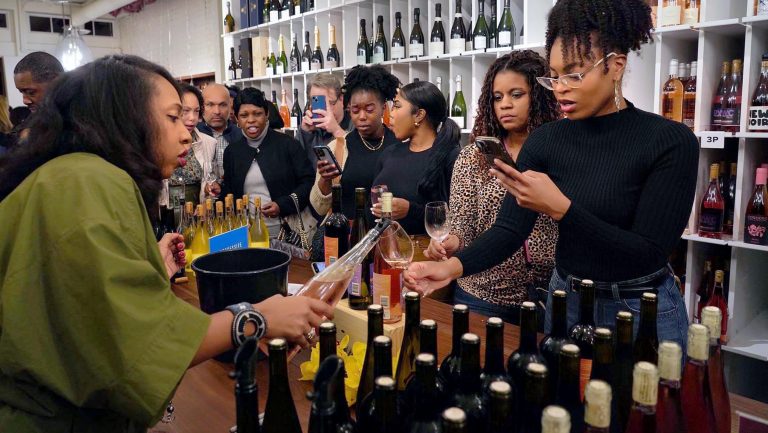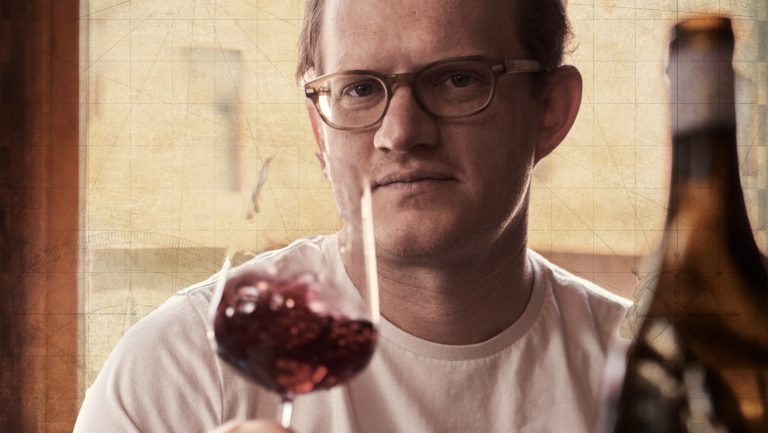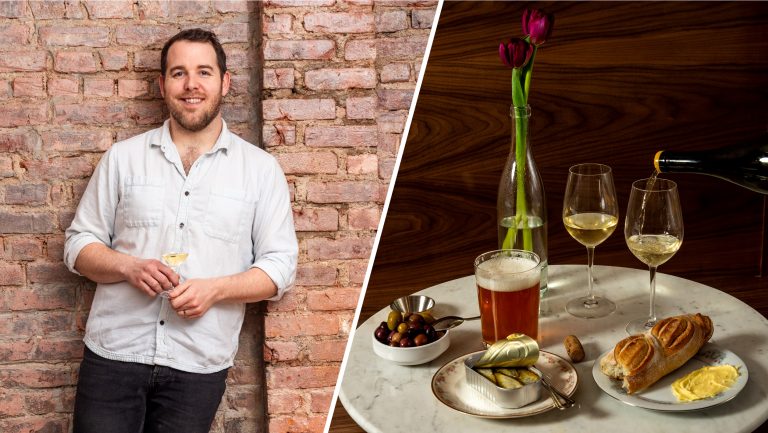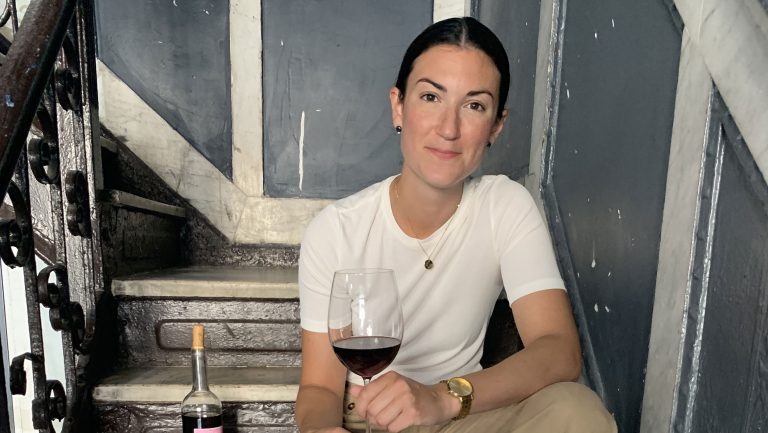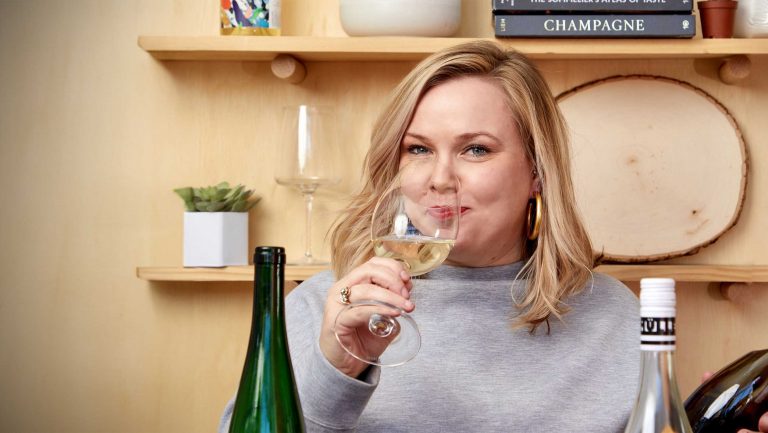As one of the country’s most beloved wine shops, it’s no surprise that the debut of The Urban Grape’s new Washington, D.C., location was a smashing success. “[Opening weekend] was awesome,” says TJ Douglas, the cofounder and CEO. “We had amazing people like Donae Burston and Ingrid Best show up and do our grand opening party, where about 500 people came through, which was unbelievable.”
The store officially opened on January 25 in the Shaw neighborhood, marking the second location for the Boston-based business. Of all the cities that The Urban Grape could have chosen for an expansion, D.C. offered some of the most compelling benefits, including easier-to-navigate alcohol import and shipping laws, and an opportunity to connect with and support a diverse, hospitality-forward community.
“The Shaw neighborhood really spoke to us in so many different ways,” says Hadley Douglas, the cofounder and CMO. “It’s a historically Black neighborhood, so putting a certified Black-owned business back into that neighborhood was really important to us.”

Don’t miss the latest drinks industry news and insights. Sign up for our award-winning newsletters and get insider intel, resources, and trends delivered to your inbox every week.
The Urban Grape was founded on principles of hospitality and accessibility. In addition to their proprietary Progressive Scale, which categorizes wines by body rather than variety or region, the store has focused on creating access to the wine industry by offering internships to students of color. Now, they hope to replicate that experience in D.C.
“When we created The Urban Grape Wine Studies Award for Students of Color in partnership with Boston University and the local restaurants and distributors up in Massachusetts, we knew we wanted to do that down here as well,” says TJ. “It’s a very hospitality-driven city, and it’s in close proximity to Howard, which has a wonderful hospitality program, but they don’t have a wine or gastronomy program yet.”
D.C.’s alcohol laws have also proved helpful to The Urban Grape’s mission. “They allow us to import wines that are not currently represented,” says TJ. “[We focus on brands owned by] BIPOC, LGBTQ+, and women. We can do it in Massachusetts, but we have to ask favors from people. Now, we can do that. We can use our platform to help those communities really grow their businesses and brands.”
As she looked back on the five bestsellers from opening weekend—plus a bonus sixth bottle— Hadley was particularly excited by the brands that were most popular. “We have all the traditional grapes and regions in the store, but what you’ve got here are six Black-owned, smaller brands, and it just shows that if you get it in the glass, people will fall in love with it.” (Listed are retail prices at The Urban Grape DC.)
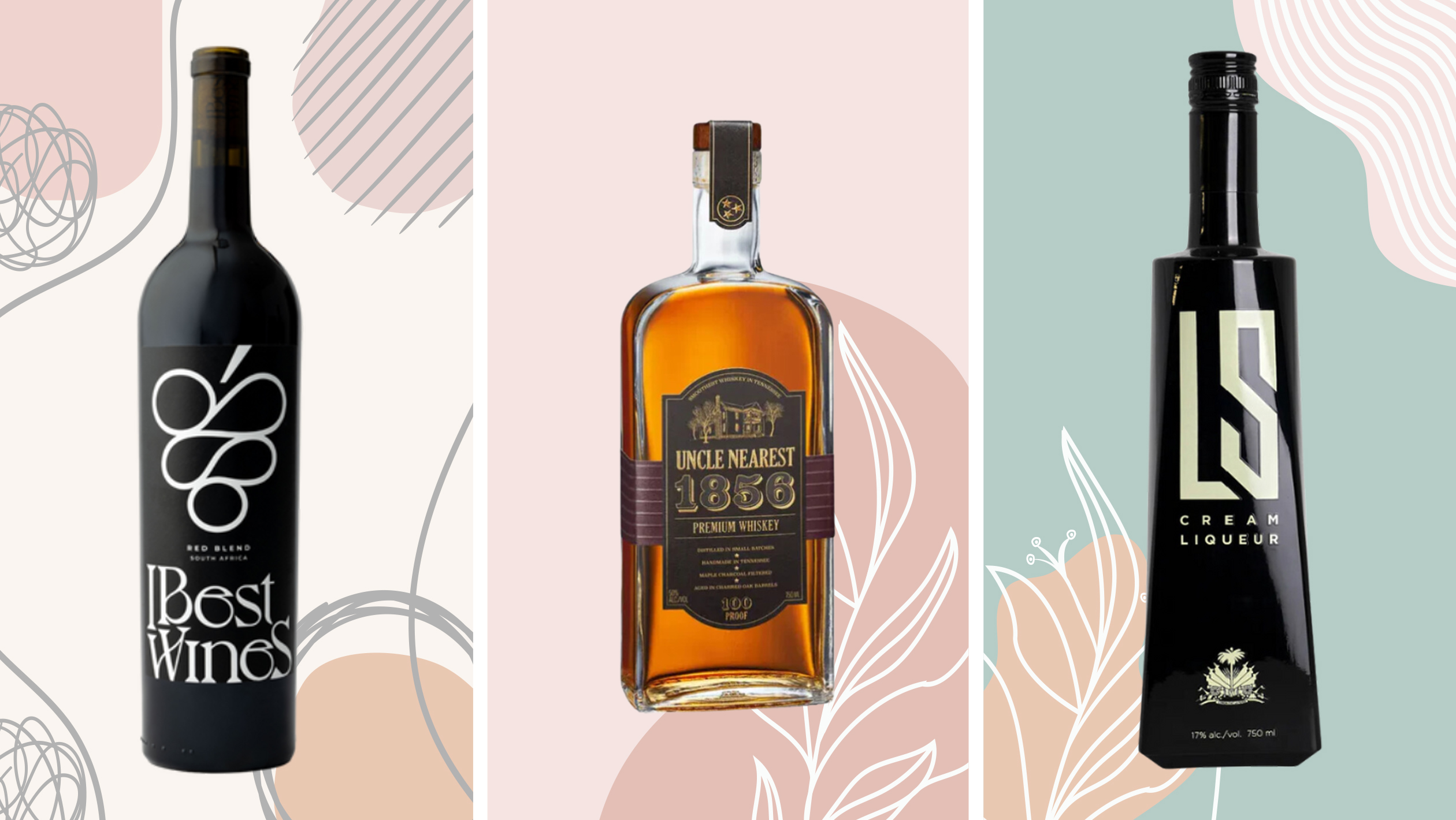
1. IBest Wines Red Blend 2021, South Africa; $32
After struggling to bring Ingrid Best’s IBest Wines into the Massachusetts market in a timely manner, TJ and Hadley were able to seamlessly import the wines to D.C. “We were so excited to see this [on the list] because it fully supports our entire reason for going to D.C.,” says Hadley. “This wine is not yet widely distributed, so it’s difficult to get your hands on it. But we were able to bring it in, and it rose right to the top.”
IBest Wines, which is run entirely by women of color, is a South Africa-based négociant. The red blend is made from Cabernet Sauvignon, Shiraz, Petite Sirah, and Malbec. “It’s delicious,” says Hadley. “A red blend is always going to perform very well at a tasting. It’s a super palate-friendly wine, and Ingrid herself is such a good storyteller and so good with a crowd that everyone walked away with a bottle.”
2. Uncle Nearest ‘1856’ Premium Whiskey, Tennessee; $60
The Urban Grape has long been a champion of Uncle Nearest, a brand that is shedding light on one of the most important, but little known, figures in Tennessee whiskey. “I heard about this brand a couple of years ago in a news article and I ended up getting some samples, loving it, and making an introduction to a large [distributing company in Massachusetts], and we’re now the number one seller in Massachusetts,” says TJ.
While The Urban Grape carries all of Uncle Nearest’s whiskeys, the 1856 is a consistent crowd-pleaser. “I think the 100 proof really shows well and gives a little more sweetness and a little more oak,” says TJ. “It’s a little bit more bourbon-like. [At the opening], they were … doing great education as well, and the story really hits. But the whiskey is fantastic. It’s a staple for us. We crush it in Boston and we’ll crush it down here, too.”
3. LS Cream Liqueur; $30
This cream liqueur is inspired by Haitian cremas, the country’s traditional, celebratory drink. Founders Myriam Jean-Baptiste (who attended the opening celebration) and Stevens Charles based this version on Charles’ grandmother’s original recipe, which includes coconut, vanilla, nutmeg, and fresh cream. Again, TJ and Hadley initially struggled to bring this into the Massachusetts market. “We were the first people to carry LS Cream in Massachusetts,” says Hadley. “There was such a hesitancy to bring it in, but we were finally able to help her.”
Once they started selling it in Boston, it took off, and D.C. has been no different. “This brand has taken off and it’s no surprise that this sold out [on opening night],” says Hadley. “People love it. It’s so good to drink on the rocks or to make cocktails with. Myriam herself is just effervescent and wonderful to be around. When she puts it in the glass, you’re going to walk away with a bottle.”

4. La Fête du Blanc 2021, Provence, France; $33
Donae Burston’s popular brand, La Fête Wine Co, is produced in partnership with Château Saint-Maur, one of 18 Cru Classé estates in Provence. The Blanc, a still white blend, is a recent addition to the lineup, which also includes a rosé and a red. “This La Fête du Blanc was a new SKU last year,” says TJ. “It’s a blend of Rolle, so Vermentino, and Sémillon, so you can imagine how beautiful and bright and pithy and waxy it is.”
“To say that people really came out to see Donae Burston would be an understatement,” says Hadley. “He had 60 to 70 people waiting to taste with him and meet him for three hours straight. People just love him, his ethos, his wines. He’s not taking himself or his product too seriously, but the quality is there.”
5. Progressive Wine Co. Pinot Noir 2022, Sonoma, California; $38
Progressive Wine Co. is TJ and Hadley’s other business, which they launched with two goals in mind: helping people understand the Progressive Scale, and thinking more progressively about how they can create access in the wine industry. “I think people just really love the story behind it,” says Hadley. “A portion of the proceeds go to support The Urban Grape Wine Studies Award for Students of Color. So they know that when they buy the bottle it’s doing good, it’s helping expand access within the wine industry, and it’s just delicious.”
The Pinot Noir, which is on the lower end of the 1R to 10R scale for red wines, is made from grapes sourced from the Russian River Valley in Sonoma. The lineup also includes a Sauvignon Blanc, a rosé, and a forthcoming Chardonnay and Cabernet Sauvignon. “We were so happy that the number five wine of the weekend was our wine, which we were not even pouring, but it was flying off the shelves,” says Hadley. “This really is a testament to our staff. They have just been hand-selling this bottle and really getting behind the brand.”
6. Boyd Cru Wines ‘Community’ Vidal Blanc 2022, Maryland; $40
While it’s easy to imagine a palate-friendly red blend on a list of best-selling wines, Boyd Cru’s Community Vidal Blanc is more of a surprise. “It’s a $40 Maryland white wine,” says TJ, pointing out the fact that both the region and the grape variety are lesser-known, and the price point is well above entry-level.
Despite these factors, Boyd Cru Wines, the first Black-owned winery in Maryland, still resonated with customers. “They would have cracked the top five, but they ran out of wine,” says Hadley. As the name suggests, the ‘Community’ Vidal Blanc is made in a crowd-pleasing style, balancing bright acidity with a touch of residual sugar. In fact, the entire brand echoes this sentiment; bringing communities together is part of their mission.

Dispatch
Sign up for our award-winning newsletter
Don’t miss the latest drinks industry news and insights—delivered to your inbox every week.
Caitlin A. Miller is a New York-based wine writer and the current associate editor for SevenFifty Daily. Her work has appeared in Food & Wine, Vinous, and Christie’s International Real Estate Magazine. She holds the WSET Diploma in Wines and was the recipient of the 2020 Vinous Young Wine Writer Fellowship.


